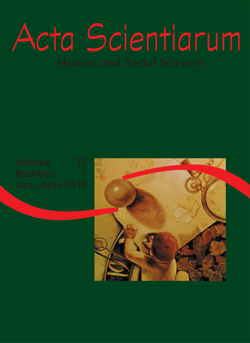<b>Ironical views on social reality: persian letters and politically incorrect guide of philosophy
Abstract
Current paper relates two views on social reality, each one considered within its specific historical period. The first, from the XVIII century, is presented by Montesquieu (1721), in Cartas Persas, and the second, presented by Pondé (2012) in Guia Politicamente Incorreto da filosofia. Four themes were selected: courage, hypocrisy, female and male relationships and intellectual vanity. Parts Letters I to LII by Montesquieu were selected in which ironical views of reality were detected. The choice of the first third part of Cartas Persas was made by the first experiences of the interlocutor with the other culture, specifically, the French society of the XVIII century. The presentation of the Letters, however, is not linear, but correspondent to the themes selected for this research. It may be observed that both sources, imbued with ironical literary resources, contribute towards an understanding of societies, the French one in the XVIII century and Brazilian society in the XXI century. Underlying ironical language, the two authors try to uncover society´s hypocrisy and demonstrate the need of a profound respect, and not a politically correct respect, among individuals.
Downloads
DECLARATION OF ORIGINALITY AND COPYRIGHTS
I Declare that current article is original and has not been submitted for publication, in part or in whole, to any other national or international journal.
The copyrights belong exclusively to the authors. Published content is licensed under Creative Commons Attribution 4.0 (CC BY 4.0) guidelines, which allows sharing (copy and distribution of the material in any medium or format) and adaptation (remix, transform, and build upon the material) for any purpose, even commercially, under the terms of attribution.
Read this link for further information on how to use CC BY 4.0 properly.























